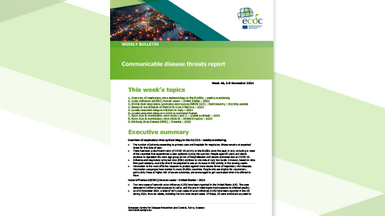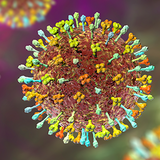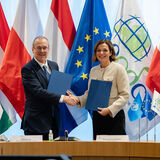Latest
Publications
Surveillance and monitoring
Surveillance and monitoring
If you are attending the Winter Games, learn how to protect your own and your family's health with our simple health tips.
Read the tipsECDC and WHO/Europe have signed an updated Memorandum of Understanding, building on two decades of close cooperation in public health.
Read the newsAfter breast cancer, cervical cancer is the most common cancer among young women in Europe, and human papillomavirus (HPV) is the main cause of cervical cancer. ECDC highlights the good news that in combination with routine cervical screening, HPV vaccination can prevent cervical cancer.
Read about the campaignAvian influenza A(H5N1) antibodies indicating past exposure have been identified in milk from a dairy cow in the Netherlands.
Read the updateSurveillance and monitoring
Surveillance and monitoring

This interactive dashboard provides a weekly integrated epidemiological summary for influenza, RSV and SARS-CoV-2.

The Learning Portal provides training courses and materials primarily for public health professionals working in infectious diseases.

A weekly summary of all information gathered through epidemic intelligence activities.



